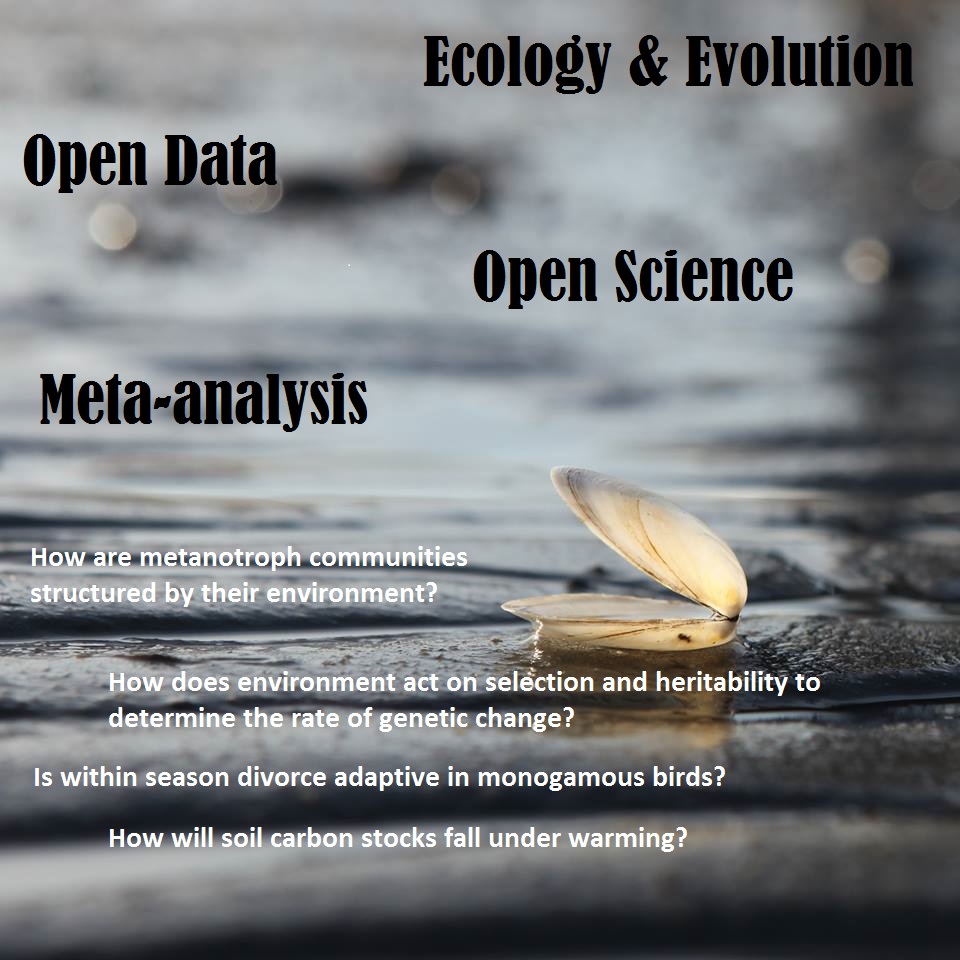From pedigrees, though divorce, to microbes and CO2: how can fast growing data-landscape help ecological and evolutionary synthesis
Dr Antica Culina
Netherlands Institute of Ecology (NIOO-KNAW)
Date: Wednesday, 11.10.2017, 13:00, the 11th of October 2017, Cent Lecture Theatre 0142 How to get there: After entering CeNT, you will find the lecture theatre 0142 ~15 meters to the right
 Meta-analysis is one of the main drivers of progress in ecology and evolutionary biology: it summarises the current knowledge on the topic and it allows for identification of methodological flaws, knowledge gaps, and areas of further research or intervention. Meta-analysis, traditionally conducted on the set of published (primary) studies, is sensitive to the publication bias. However, as Open Science is increasing the number and the quality of datasets, these can be used to verify (or supplement) the results of primary studies, or can be used as data-points themselves. However, this great opportunity has not yet been fully seized by the ecological and evolutionary disciplines.
Meta-analysis is one of the main drivers of progress in ecology and evolutionary biology: it summarises the current knowledge on the topic and it allows for identification of methodological flaws, knowledge gaps, and areas of further research or intervention. Meta-analysis, traditionally conducted on the set of published (primary) studies, is sensitive to the publication bias. However, as Open Science is increasing the number and the quality of datasets, these can be used to verify (or supplement) the results of primary studies, or can be used as data-points themselves. However, this great opportunity has not yet been fully seized by the ecological and evolutionary disciplines.
In this talk I will use four case studies (from animal evolutionary ecology, microbial ecology, soil carbon ecology, climate change) to examine the value of open data, and generally open science to EcoEvo meta-analysis. I hope this talk will encourage better utilisation of the dynamic, heterogeneous, and fast-growing data-landscape within ecology and evolutionary biology, and lead to better meta-analysis for improved decisions based on previous research, and for better integration of research outputs.